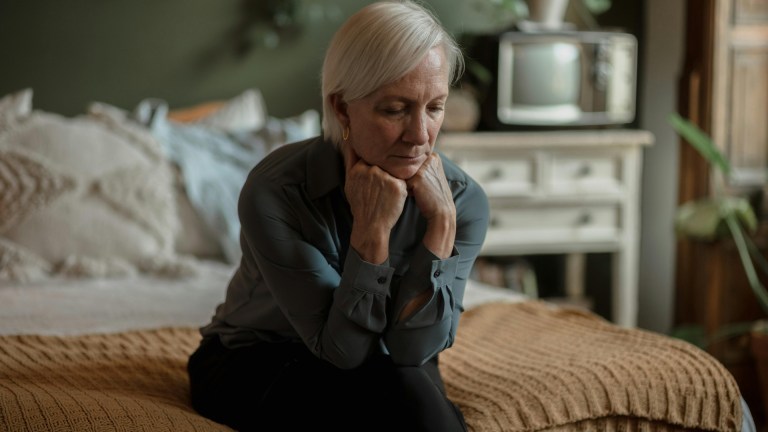“You lose either way. So if you’re in an area away from London, then there’s a higher proportion of private renters on benefits so they’re competing for the hypothetical bottom 30% of rents against each other,” said Sam Lister, a policy and practice officer at the Chartered Institute of Housing.
“If you’re in London and in the South East where there are fewer private renters on benefit, the rents are competitive anyway and you are competing for cheaper rents for people who aren’t on benefits. So wherever you’re renting you’re going to be struggling.”
Lister’s analysis comparing Census and Department for Work and Pensions (DWP) data found coastal and Northern towns with high benefit caseloads will see the biggest difference due to the LHA rise.
Regionally, up to 57% of private renters in the north-east of England receive help for housing costs through universal credit or housing benefit.
Up to half of renters in the North West and Wales receive support while in London around 47% of renters need help at the upper estimate.
In 52 councils across London, the East and South East, under 30% of private renters were receiving benefits. Claimants in the English capital are concentrated in more affordable areas such as Enfield, Barking and Dagenham and Brent and Haringey where at least 63% of renters receive support.
Advertising helps fund Big Issue’s mission to end poverty
Blackpool is the town with the most renters on benefit with 81% of tenants claiming support. Teesside also has high rates with up to 70% in some areas while it’s around 60% in coastal areas like Tendring and Castle Point in Essex, Torbay, Hastings and Grimsby.
Meanwhile, levels are at least 55% in the depressed housing markets of northern England in places like Barrow, Burnley, Rochdale and Oldham.
Local housing allowance has been frozen while private rents have risen to record highs, leading to anti-poverty organisations including the Big Issue to call for housing benefits to rise.
Last summer, the Joseph Rowntree Foundation reported that housing benefits covered just 18% of private rentals on average and in some areas barely any affordable properties were available at all.
The Office for National Statistics recently revealed that rents across the UK had risen by 9% on average on the year up to February, reaching £1,276 a year.
With the highest annual increase in rents since records began, Hunt was forced to act to prevent an onslaught of evictions as low-income renters struggled to keep up.
Advertising helps fund Big Issue’s mission to end poverty
But the local housing allowance rise is currently scheduled to be a one-off with no plans to relink housing benefits to possible rent rises in a year’s time.
The Scottish government this week committed to introducing rent controls when it unveiled its Housing (Scotland) Bill. The Westminster government has repeatedly rejected bringing in similar measures and the demand for private rented accommodation suggests rents are only going one way.
That’s why the Work and Pensions Committee recently called for the government to introduce a new ‘uprating guarantee’ to increase benefits every year and end uncertainty for tenants and landlords.
Sir Stephen Timms, committee chair, said: “Ministers should commit to consistent uprating of benefits each year. It is time to end the annual ‘will they or won’t they’ speculation and all the worry that brings to those who rely on the social security system for financial support.”
It’s a view also shared by Propertymark, the body representing property agents.
Timothy Douglas, head of policy and campaigns at Propertymark, said benefits do not currently offer a “substantial safety net” and added: “It is down to the UK government now to provide an effective way of determining what benefits should be.”
Advertising helps fund Big Issue’s mission to end poverty
One of the common reasons cited for not hiking LHA annually is the fear that it will drive rents up even further.
CIH’s Lister said his research debunks the “standard excuse for keeping the rates down”.
“One of things that ministers have sometimes pushed out is that they don’t want to increase the LHA rate because that will just encourage landlords to put up rents,” said Lister, who carried out the research for CIH’s annual Housing Review.
“When there’s that much demand from either the benefit caseload or landlords chasing the bottom 30% of the market then landlords are pretty much going to be able to charge what they want anyway.
“The idea that by holding down the LHA rate you’re going to hold down rents is fanciful really. And that works in the higher rent areas as well where there is very high demand, you’re not going to hold down rent levels in London by holding down the LHA rate.
“So when they do freeze that is often the justification but it’s very unlikely to.”
Advertising helps fund Big Issue’s mission to end poverty
Do you have a story to tell or opinions to share about this? We want to hear from you. Get in touch and tell us more.










